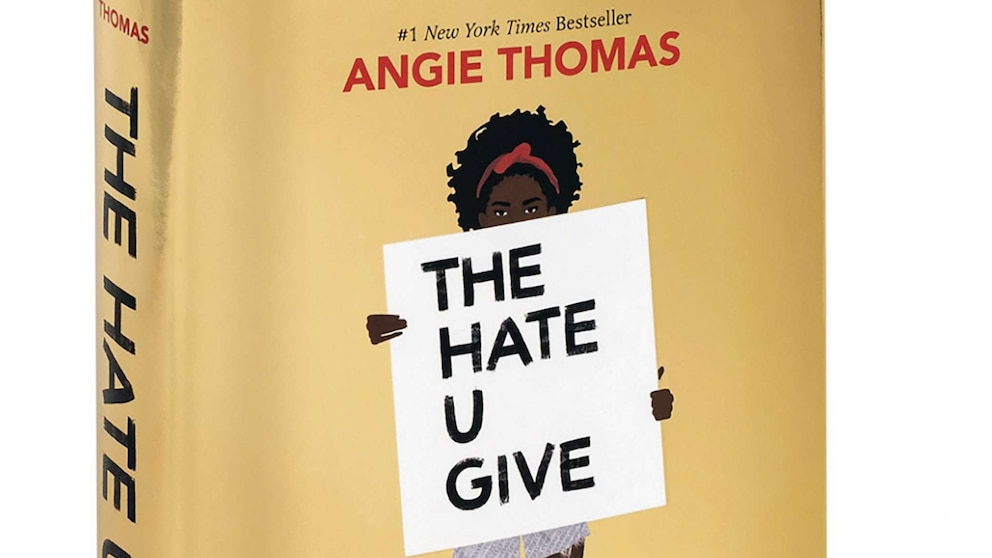What's in some of the most challenged books in America?
In the 2021-2022 school year, libraries and school districts were bombarded with efforts to ban or restrict books.
There were at least 2,532 individual instances of book banning tracked from July 2021 to June 2022, which impacted 1,648 titles, according to anti-censorship advocacy group PEN America. The vast majority of these titles were written by or about LGBTQ people or people of color.
ABC News took a look at some of the challenged books to find the content most cited in complaints against these titles, and how the scenes fit into the context or theme of the book.
There may be some graphic imagery described below.
"Gender Queer: A Memoir"

"All Boys Aren't Blue"

"Out of Darkness"

"The Hate U Give"

"The Bluest Eye"

Researchers: Diverse voices are being targeted
Many of the banned books targeted are cited for their sexual content, as seen in the above examples. However, the themes of the most targeted books heavily involve race, gender and sexuality.
Researchers said the rise in attacks against certain books mirrors the ongoing effort from some conservative politicians and right-wing activist groups to restrict racial or LGBTQ content in schools, and legislate against LGBTQ rights.
"There's no question that what we are seeing in terms of challenges to books is a reflection of the larger political moment that we are in," Megan Murray Cusick, the deputy director of state advocacy at the American Library Association, told ABC News.
"Make no mistake — this is a political campaign to remove books from schools and public libraries," Cusick said.
Jonathan Friedman, the director of free expression and education programs at PEN America, noted that many of the efforts are coming from newly formed groups, with major national organizations being formed as recently as 2021, when the surge in book banning began.
"Nobody previously was looking at every book that has any reference to anybody LGBTQ and saying, 'I found 80 books in this database that mentioned the word queer. So let's ban all of them,'" Friedman said. "In part, this reflects a growth in publishing, a diversification of the books available in schools … but in part it also reflects a clear commitment to trying to erase those identities and stories entirely."
Supporters of this movement say these laws and restrictions give parents more of a say in their children's education.
“The content is not only too mature or inappropriate, but it is vulgar,” said Laurie Cardoza-Moore, a conservative Tennessee department of education commission member, in a November hearing. “Does this bring out the best for our students, our children?”
She is part of a Tennessee commission recently dedicated to reviewing and potentially restricting books.
Outlook for 2023
Going into 2023, the role of state governments in book banning is top of mind for researchers.
Tennessee's textbook commission is one example of government-level attempts at censorship, Friedman said.
The state commission will hear book appeals and decide whether a book can be used in schools and "local education agencies" based on whether it is "appropriate for the age and maturity levels" of those who may access them.
"Whoever controls the commission controls what isn't to be considered acceptable in every school," Friedman said. "And some of the people who are on that commission were recently pushing for it not to be a requirement that they read the books before they make decisions on them."
Tennessee's department of education has not responded to ABC News' requests for comment.
“No one has taken responsibility as to how library books have previously reached school libraries in the state,” Republican Tennessee House Speaker Cameron Sexton told The Tennessee Star. “This bill will establish a statewide process that includes both [Local Education Associations] and the Textbook Commission in the process for a uniform, approved list of school library books."
This legislative move, alongside similar steps being taken in other states to punish educators or institutions that house controversial titles, represents a growing trend, experts said.
Researchers fear that in 2023, educators and librarians may be forced to censor their literature, self-censor their curriculum to avoid backlash and more.
Banning books may have devastating effects "in terms of loss of engagement in school, self-efficacy in reading skills, in terms of engagement between caregivers and children on important issues, in terms of empathy and understanding of people who have very different backgrounds or experiences than we do," Cusick said.
ALA has been gathering this data for more than 20 years, so the surge in book-banning efforts "is a significant concern," Cusick adds.
"2023 is going to be a challenging year," Cusick said. "Our statistics for 2022, even though they are preliminary, suggest that attempts to ban books in this past year will exceed the unfortunate record that was set in 2021."




